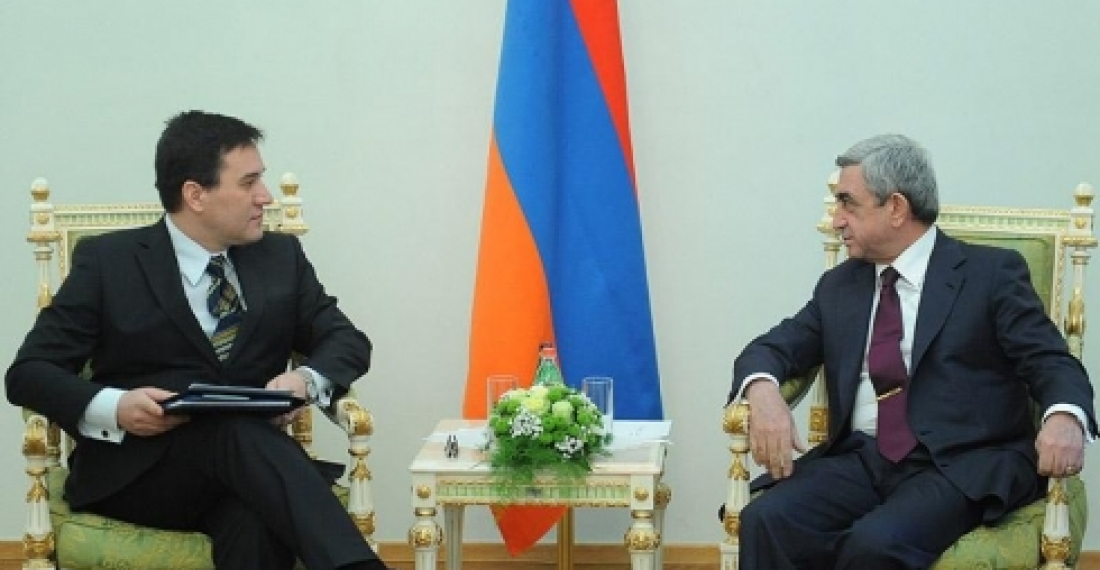Armenian President Serzh Sargsyan received the newly appointed Head of the European Union Delegation in Armenia, Ambassador Traian Hristea.
At the meeting, the two sides stressed the importance of Armenia-EU cooperation. According to the President of Armenia, recently the cooperation has become quite active which is manifested in reciprocal visits, as well as dynamic implementation of the new programs. Serzh Sargsyan underscored that Armenia is determined to carry on with the reforms in different areas.
Ambassador Traian Hristea noted that European Union and Armenia have advanced relations and assured the President that during his tenure he would strive to preserve that level and add to the efforts for the reinforcement of trust, dialogue and cooperation in all areas. He underscored that EU is interested in deepening relations with Armenia and will assist to the process of reform in the country, according to the Press Service of the Armenian President.
At the moment the EU and Armenia are engaged in negotiations on a number of issues aimed at strenghtening the co-operation between the two countries, including an Association Agreement and a Visa Facilitation agreement.
source: commonspace.eu with the Press service of the President of Armenia
photo: The President of Armenia Serz Sargsyan with the new Head of the EU delegation to Armenia, Ambassador Traian Hristea.







